|
Гипермаркет знаний>>Английский язык>>Английский язык 11 класс>> Module 1 Relationships
Module 1
Relationships
Look at Module 1
Find the page numbers for pictures 1 -4.
Find the page numbers for
• a letter
• an extract from a tale
• a pie chart
Listen, read and talk about...
• families & relatives
• relationships
• friends & neighbours
• friendship
• people's appearance, personality & behaviour
Learn how to ...
• make a complaint, apologise
• invite, accept/decline
• use your senses in descriptive writing
Practise...
• idioms about families
• present simple/present continuous, present perfect, present perfect continuous
• past simple/past continuous, past perfect/past perfect continuous
• will/going to, future continuous
• used to - be/get used to - would
• phrasal verbs: come
• linkers joining similar/contrasting ideas
Write / Make ...
• a short text about your family
• a dialogue between two characters
• a description of a person
• an article about ethnic groups in your country
• a programme for a 'Clean, Green Neighbourhood' day
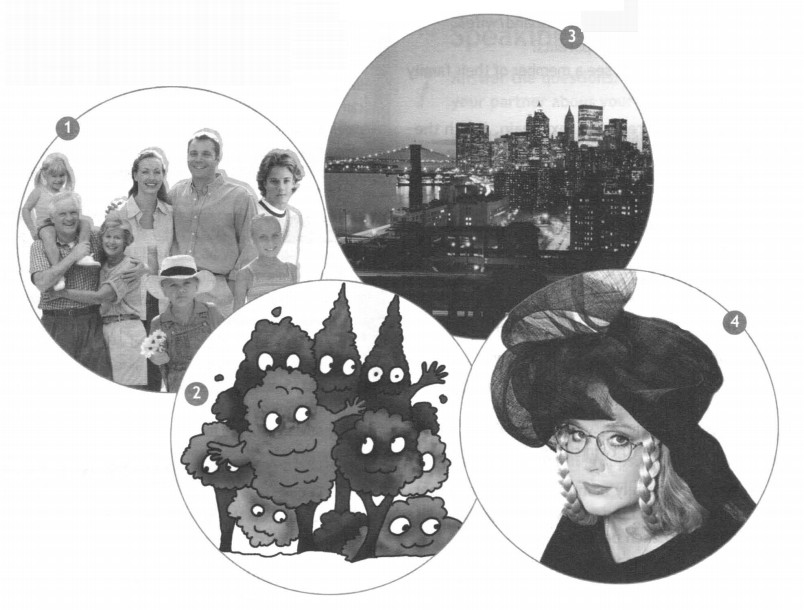
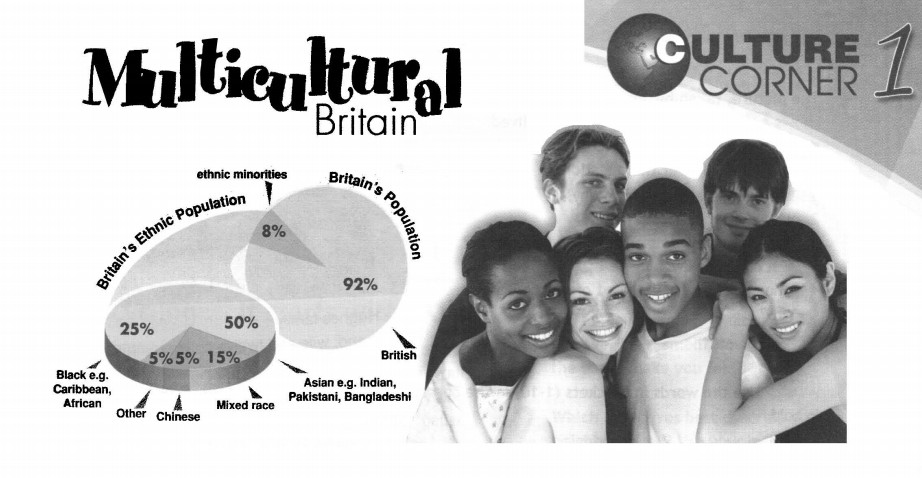
"My grandparents first came to Britain from India in 1962 to work in a factory, so I'm third generation British-Indian. I speak Gujarati with my family and enjoy going to huge Indian weddings at the community centre or taking part in Hindu festival celebrations such as Diwali, but I have a lot of friends and interests outside the community, too. I've heard recently that more than a third of people living in my city, Leicester, today are migrants1 or second or third generation migrants. So, it's set to be the first city in the UK where ethnic minority groups will make up the majority!
Rupa, 16
1people moving from place to place to find work
1 Look at the pie chart. What information does it give us about the ethnic population in Britain?
2 RNE Read the text. Who (Rupa, Jerome or Li):
1 says their community experiences less racism now?
2 has experienced racism?
3 doesn't speak English at home?
4 says their community has fit in welt in Britain?
5 likes to join in with community events?
"When people ask me where I'm from, I say I'm British, even though I'm of Chinese origin. I used to live in a small town and I got picked on a bit because I looked different, but now I live in Newham in East London, which is the most culturally diverse place in the United Kingdom. At school, half of the pupils speak English as a second language. Our next door neighbours are from Poland. They came to Britain with their 15 year-old boy just after Poland became part of the E.U."
Li, 17
"My parents are from Jamaica, but they have been living in England since they were young. I was born and brought up in Birmingham, England. When the first Caribbeans were invited to come to Britain for work in the late 1940s, there was quite a lot of racism2, and it was hard for Caribbeans to find well-paid work. Nowadays, the Caribbean community is one of the most integrated in Britain. Racism isn't unheard of, of course, but you only have to see how many mixed-race marriages there are now and how many second and third generation Caribbeans are household names on TV to understand how much things have changed."
Jerome, 18
2beliefthat people of some races are inferior to others
3 Explain the words in bold. Make sentences using them.
4 Listen and read the text again. Work in groups of four. You are an interviewer, the others are the teens in the text (Jerome, Li and Rupa). Write questions and interview them.
5 Portfolio: Work in groups. Find information and statistics about different ethnic groups in your country. Who are they? When did they come to your country? Why? Write a short article for an international school magazine.
History ACROSS THE CURRICULUM
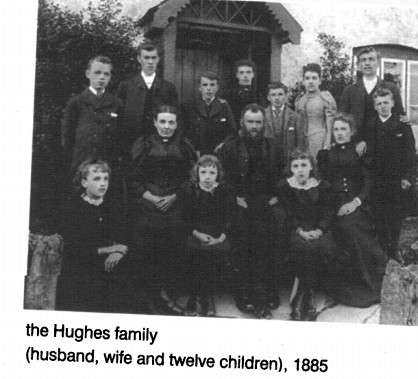
1 The picture, taken by John Thomas in 1885, shows a Victorian family, a family that lived during the reign of Queen Victoria in Britain (1837-1901). Answer the questions.
1 Is it a working class family? Why?
2 Where are they?
3 What are they dressed in: everyday clothes? best clothes? Why?
4 Who seems to be the head of the household? Why?
2 RNE Use the words in brackets (1-10) in the correct form to complete the gaps. Explain the words in bold.
Victorian Families
Upper & Middle Class Families
Families were very important to Victorians. They were usually large, with an average family 1).....(have) at least five or six children.
The father, who perhaps worked in banking or insurance, was the head of the household The children would speak 2).....(polite) to him, and call him "Sir". The mother was responsible for 3) ...... (run) the household and would usually spend her time planning dinner parties or visiting her dressmaker or friends. Children saw very little of 4).... (they) parents anaf spent most oft/re day rn the nursery wrtft a nanny1 as Victorians firmly believed that a child should be 'seen and not 5)........... (hear)'!
Upper and middle class families lived in large, 6).......... (comfort) houses and had servants such as a cook and kitchen maids to prepare the family meals, a butler to answer the door and wait on the family, and housemaids to carry out household chores such as washing clothes, cooking and cleaning.
For entertainment, families 7)......... (visit) new parks and museums, such as the Victoria and Albert Museum.
1 a woman paid by parents to look after children
3 Listen and read the text again. Compare and contrast the two types of Victorian families. Use whereas, but, both.
> Upper/Middle class families lived in large houses whereas working class families lived in small ones.
WORKING CLASS FAMILIES
Most of these families lived in small houses. Often several families lived in a single room. Houses had no running water and it was not 8)........... (common) for a whole street to share two 9)..........(out) toilets and a water pump.
It was very common for poor families to have as many as nine or ten children, many of hom didn't go to school. Instead, they looked after their 10 .........(young) brothers and sisters or even worked. In Victorian Britain, children as young as three or four years of age, worked up to 16 hours a day in coal mines, in cotton mills and as chimney sweeps. The father of the house often worked in a factory while the mother was responsible for all the household chores.
For entertainment, working class families went to parks, cheap music halls or to gardens which had fairgrounds, sports matches and fireworks displays.
4 THINK! Project: Find a picture of your ^amily. Compare it to the photograph above. How similar/different are they? What do you think each family's lifestyle is like?
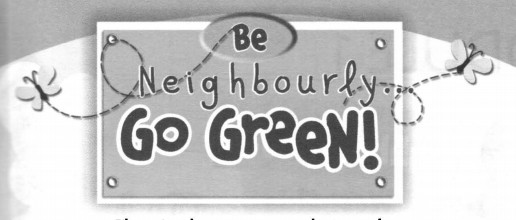
There's plenty you can do to make your neighbourhood a cleaner, greener placel
Recycling ... It starts with YOU!
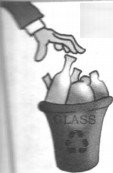
As the saying goes, there is strength in numbers! So how about getting together with your neighbours and starting a community recycling programme? You could set up bottle, paper, plastic, aluminium and clothing recycling banks and take turns to take everything ¦ * to a local recycling point In this way, your community will be helping to save limited raw materials. You will also help preserve landfill space and reduce the greenhouse gases that they produce.

Bin it, don't drop it !
Have you ever considered how time-consuming it is for local councils to remove litter from our streets? Or how much money it wastes that could be better spent on other services? Organise a litter collection day in fa your neighbourhood. Get some bin bags and see who can fill the most! Once a few of you take action, others will quickly join in!
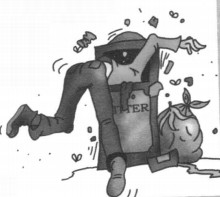
Get growing!
Sick and tired of living in a concrete jungle? Flowers, plants and trees make our communities more welcoming places to Sve in. They also improve air quality by filtering out pollutants and creating places for small animals and insects to live in. So, organise teams and get planting in your neighbourhood today! Ask your local council for permission to \ plant trees and flowers along roadsides. Don't forget, every little bit helps!
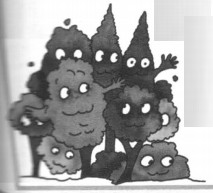
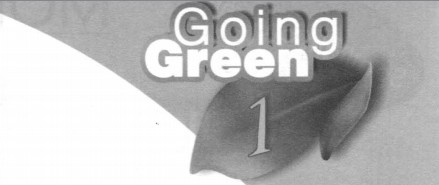
1 Close your eyes, listen to the music and think of your neighbourhood on Monday morning. What can you see, hear, smell? How does the scene make you feel?
2 Which adjectives best describe your neighbourhood? Use your own ideas as well, Give reasons.
• green • clean • crowded • dark
• polluted • dirty • pleasing • noisy
• qutet « peaceful
3 Look at the leaflet. What is it about? What is its purpose?
4 Explain the words in bold, then use some of them in sentences of your own.
5 THINK! Listen and read again. List some ways of making your neighbourhood greener. How does the writer support his suggestions?
6 Portfolio: Work in groups. Imagine you are organising a 'Clean, Green Neighbourhood' day. Plan the day's events & activities e.g. tree- planting 9-11am. Present your ideas to the class.
7 THINK! What does the saying mean to you? Discuss.
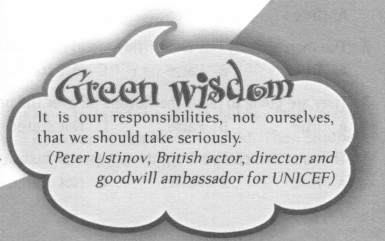
MODULE 1

One of the most famous and most frequently visited neighbourhoods in New York is the Upper West Side. It stretches from 59th Street and Central Park West to Riverside Park, and is considered by many to be the most typical Manhattan neighbourhood.
The Upper West Side has had many famous residents in the past, including a member of the Beatles, John Lennon, 1).... a big castle-like structure which borders the west side of Central Park.
With generations of high-profile tenants putting down roots in the Upper West Side, it's no wonder rents and real estate prices continue to rise! However, bear in mind the benefits of living in this charming neighbourhood. Elegant buildings, 2)...... line the quiet streets and house the city's rich, intellectual and creative community. Many people are attracted by the suburban feel of the area, and it is especially popular with families, young professionals and actors.
Much of the area is protected by landmark status, 3)... It includes a jumble of chic spots, glamorous concert halls and the famous Lincoln Center for the Performing Arts where you can see fabulous theatre, ballet and opera productions. The famous Juilliard School of Music is also located in the Upper West Side, 4).....
This area of New York is busy by day, with performers rushing to auditions and families taking strolls along the pavements. It is also an exciting place at night 5).......
Don't worry about the kids because there are lots of things for them to do in this neighbourhood, too! The American Museum of Natural History is a fantastic place,
6)..... They can also enjoy a trip to the Children's Museum of Manhattan.
So, whatever you are looking for, you will certainly find it in the Upper West Side!

RNE Reading
Read the text above and fill in the gaps (1-6) with the phrases (A-G). There is one phrase that you do not need to use.
A which are known as brownstones
B so there is plenty to satisfy the music lover
C with its many restaurants and ethnic bars
D who lived in the Dakota building
E where our young visitors can see dinosaur fossils
F because everyone loves living there
G which means that the buildings cannot be changed
RNE Listening
Listen and choose A, B or C, for statements 1 to 7.
1 East Swinton residents can receive free plant bulbs.
A True B False C Not stated
2 The man already has lots of flowers in his garden.
A True B False C Not stated
3 They are going to plant the flowers all over the park.
A True B False C Not stated
4 The man can choose from three types of bulbs.
A True B False C Not stated
5 The man thinks he will need more than five hundred bulbs.
A True B False C Not stated
6 The bulbs will probably arrive in seven days or less.
A True B False C Not stated
7 The man has some friends who want some bulbs too.
A True B False C Not stated
Choose the best word (A-D) for each gap (1-7)

Alia Pugacheva was born in 1949 in Moscow, Russia, where she 1)...her first public appearance at the age of five. She studied piano and singing and in 1965 she was heard 2)......the radio for the first time, performing one of her most popular songs, 'Robot'. Her victory at an international contest in 1978 made her a Russian star. Pugacheva has performed and recorded 3)...........300 songs. Through 4).....work, she became the biggest star of the 5)...........Soviet Union. Not only is she loved by young pop music fans, but 6)....... generations also respect and listen to her. She is so admired in Russia and around' the wor/a' that her name has been given to an ocean liner in Finland, a 7).........of French perfume and a magazine, as well as to many little girls all over Russia!
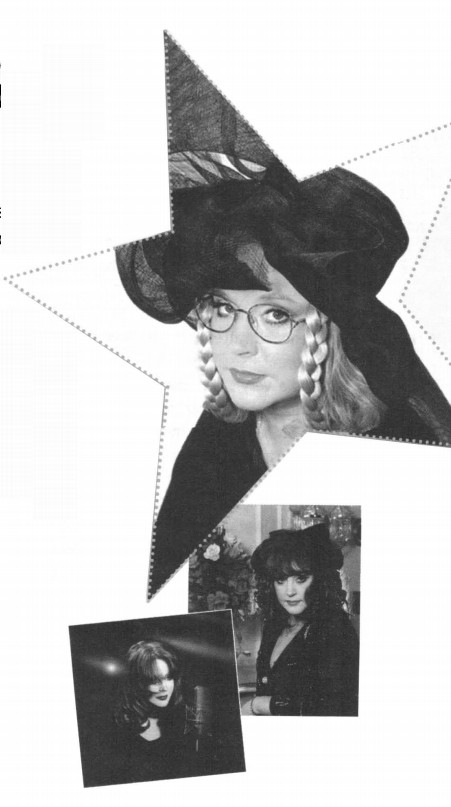
1 A made B did C had D gave
2 A in B on C at D from
3 A above B over C after D up
4 A tough B firm C difficult D hard
5 A former B previous C earlier D past
6 A later B elder C older D aged
7 A type B name C brand D mark
RNE Writing
Read the extract from your pen friend Sue's letter. Write a letter to Sue. In your letter:
• ask her about her neighbourhood
• ask three questions about her new friends
Write 60-80 words.
I really like my new neighbourhood. The people here are great and I have made some new friends. Still, I miss you a lot.
RNE Speaking
Give a 2-minute talk about your family. Remember to talk about:
• the members of your family
• who you admire most in your family and why
• your family values
• what you usually do with your family
You have to talk for 1.5-2 minutes. Your partner will listen until you have finished. Then she/he will ask you some questions.
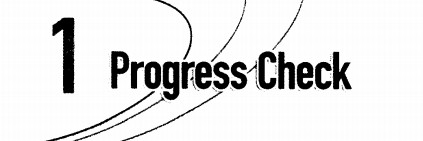
1 Fill in: accommodate, devoted, priority, supportive, secure, appreciate, overweight, ambitious, essential, potential.
1 It is .... that you study hard if you want to succeed.
2 My parents have always been very... and help me when I have problems.
3 I don't think my brother is very ... because he turned down an excellent job.
4 If you think you are ... you should go on a diet.
5 I think Mary has the ....... to become a brilliant pianist.
6 The university has rooms to .... first-year students but after that you have to find a flat of your own.
7 She is a very ......... daughter who spends all her time looking after her sick mother.
8 My..........is to enjoy life rather than working hard to make a lot of money.
9 I ........ your offer of help, but I can fix the computer myself, thank you.
10 Even if a website claims to be ..........., you should not send them important personal information.

2 Fill in the gaps with the correct form of the verbs in brackets.
1 We'd better hurry; our train ....... (leave) in half an hour.
2 I think I should see the doctor because I .....(get) a lot of headaches recently.
3 Don't worry, I............(buy) some milk on my way home.
4 I ..........(go) to see Martin about buying his car yesterday afternoon.
5 The technician ........... (do) something to your computer when I left the office last night.

3 Complete the sentences using the words in bold. Use two to five words.
1 I am sure Peter will help you.
bound Peter........help you.
2 I find it difficult to get up so early in the morning.
used I...........getting up so early in the
morning.
3 My parents have decided to buy a small cottage,
going My parents.........a small cottage.
4 I last saw Mary a month ago.
have I.......last month.
5 I started to learn French more than a year ago.
been I.........for more than a year.

4 Complete the phrasal verbs with the correct particle.
1 He couldn't come........a good excuse for being late.
2 I came.............. some good bargains in the antiques market.
3 Why don't you come..............to our place when you finish work?
4 He was able to start his own business when he came.............some money.
5 Oh dear! I think I'm coming .........a cold.

5 Fill in the gaps with the correct preposition.
1 I'm sorry, but I'm not ashamed ....... what I did.
2 It's no good arguing............it, the decision is final.
3 You should never become too attached ...........animals.
4 I have no respect............people who drop litter in the streets.
5 He is a shy person who never gets close............ others.

6 Match to form exchanges.
I1I I Are you doing anything this evening?
I2I I Would you like some help with that?
I3I I I think he is going to be late.
I4I I How about going to the cinema tonight?
I5I I I'm thinking of leaving my job.
a Not again!
b That doesn't sound like a good idea.
c I can manage, thanks.
d Nothing special. Why?
e I'm afraid I can't.
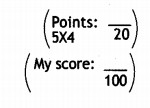
NOW Can ...
talk & write about my family & friends
talk about relationship
write a descriptive article about a person
... in English
Английский язык. 11 класс : учеб. для общеобразоват. учреждений / [О.В. Афанасьева, Дж.Дули, И.В. Михеева и др.]. - 2-е изд., доп. и перераб. - М.: Express Publishing : Просвещение, 2009. - 244 с. : ил. - (Английский в фокусе).
Английский язык для 11 класса, учебники и книги по английскому языку скачать, библиотека онлайн
Содержание урока
 конспект урока конспект урока
 опорный каркас опорный каркас
 презентация урока презентация урока
 акселеративные методы акселеративные методы
 интерактивные технологии
Практика интерактивные технологии
Практика
 задачи и упражнения задачи и упражнения
 самопроверка самопроверка
 практикумы, тренинги, кейсы, квесты практикумы, тренинги, кейсы, квесты
 домашние задания домашние задания
 дискуссионные вопросы дискуссионные вопросы
 риторические вопросы от учеников
Иллюстрации риторические вопросы от учеников
Иллюстрации
 аудио-, видеоклипы и мультимедиа аудио-, видеоклипы и мультимедиа
 фотографии, картинки фотографии, картинки
 графики, таблицы, схемы графики, таблицы, схемы
 юмор, анекдоты, приколы, комиксы юмор, анекдоты, приколы, комиксы
 притчи, поговорки, кроссворды, цитаты
Дополнения притчи, поговорки, кроссворды, цитаты
Дополнения
 рефераты рефераты
 статьи статьи
 фишки для любознательных фишки для любознательных
 шпаргалки шпаргалки
 учебники основные и дополнительные учебники основные и дополнительные
 словарь терминов словарь терминов
 прочие
Совершенствование учебников и уроков прочие
Совершенствование учебников и уроков
 исправление ошибок в учебнике исправление ошибок в учебнике
 обновление фрагмента в учебнике обновление фрагмента в учебнике
 элементы новаторства на уроке элементы новаторства на уроке
 замена устаревших знаний новыми
Только для учителей замена устаревших знаний новыми
Только для учителей
 идеальные уроки идеальные уроки
 календарный план на год календарный план на год
 методические рекомендации методические рекомендации
 программы программы
 обсуждения
Интегрированные уроки обсуждения
Интегрированные уроки
Если у вас есть исправления или предложения к данному уроку, напишите нам.
Если вы хотите увидеть другие корректировки и пожелания к урокам, смотрите здесь - Образовательный форум.
|































